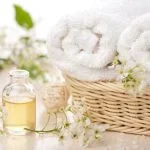Aromatherapy is the practice of using essential oils and aromatic compounds to promote holistic well-being. Dating back thousands of years, this ancient healing art has been used for both spiritual and medicinal purposes. Today, aromatherapy is widely recognized as a complementary therapy that can be utilized to treat a variety of physical, emotional, and mental health conditions.
Aromatherapy works by harnessing the therapeutic properties of essential oils, which are extracted from plants, flowers, herbs, and trees. These potent oils can be inhaled, applied topically, or used in massage to stimulate the senses and promote relaxation, improve mood, and alleviate various symptoms. From stress relief to pain management to skin care, aromatherapy offers a natural approach to enhancing overall well-being.
In this article, we will explore the science behind aromatherapy and its potential benefits for treating a range of conditions. We will also delve into specific uses of aromatherapy for stress and anxiety relief, pain management, skincare, respiratory health, and more. Additionally, we will provide guidance on using aromatherapy safely and responsibly while emphasizing its role as a complementary therapy for achieving optimal health.
The Science Behind Aromatherapy
Aromatherapy is a holistic healing treatment that uses natural plant extracts, also known as essential oils, to promote physical, mental, and emotional well-being. These essential oils are derived from various plants and have been used for centuries in different cultures for their medicinal and therapeutic properties. The science behind aromatherapy lies in the way these essential oils interact with the body and mind.
When inhaled, the scent molecules in essential oils travel to the olfactory system which is linked to the limbic system – the part of the brain that controls emotions and memories. This interaction can produce a calming or invigorating effect on the mind, contributing to an overall sense of well-being.
In addition to inhalation, essential oils can also be absorbed through the skin during massage or added to bathwater where they enter the bloodstream and provide therapeutic benefits throughout the body.
The potential benefits of aromatherapy include stress relief, improved sleep quality, boosted moods, pain management, improved digestion, and enhanced immune function. Each essential oil has unique properties that can address specific health concerns or simply promote relaxation and overall wellness. Scientists continue to study how aromatherapy can be used as a complementary therapy for various conditions and are exploring its potential in clinical settings as well.
Common Uses of Aromatherapy
Aromatherapy is a holistic healing treatment that uses natural plant extracts to promote health and well-being. It can be used to manage various conditions and ailments, offering a gentle yet effective alternative or complementary therapy for overall wellness. Some of the most common uses of aromatherapy include stress and anxiety relief, pain management, skincare, and respiratory support.
One of the primary benefits of aromatherapy is its ability to reduce stress and anxiety. Certain essential oils have been found to have calming effects on the mind and body, helping individuals relax and alleviate feelings of tension. Lavender, chamomile, and ylang-ylang are among the most popular essential oils used for stress relief and relaxation purposes.
In addition to promoting emotional well-being, aromatherapy can also be effective in managing pain. Essential oils such as peppermint, eucalyptus, and rosemary have analgesic properties that can help reduce discomfort associated with headaches, muscle aches, arthritis, and other types of pain. Aromatherapy massage techniques are commonly employed for pain management, allowing the oils to be absorbed through the skin for localized relief.
| Condition | Recommended Essential Oils |
|---|---|
| Stress and Anxiety | Lavender, Chamomile, Ylang-Ylang |
| Pain Management | Peppermint, Eucalyptus, Rosemary |
Stress and Anxiety Relief
Aromatherapy has been long used to help reduce stress and anxiety. The use of essential oils in aromatherapy can be an effective way to promote relaxation and alleviate feelings of tension and worry. When inhaled, the aromatic compounds in essential oils can stimulate areas of the brain that are responsible for emotions, ultimately leading to a calming effect on the mind and body.
Some specific essential oils that are known for their stress-relieving properties include lavender, chamomile, bergamot, and frankincense. These oils can be used individually or blended together to create a more potent relaxation effect.
For example, a few drops of lavender oil added to a warm bath or applied to the skin with a carrier oil can help soothe nerves and induce a sense of calm. Bergamot and frankincense oils are also often used in diffusers to create a tranquil atmosphere at home or work.
In addition to inhalation and topical application, certain essential oils can also be used in massage therapy for stress relief. A gentle massage with diluted essential oils such as chamomile or ylang-ylang can provide both physical and emotional relaxation. Aromatherapy offers various methods for using essential oils to achieve stress and anxiety relief, making it a versatile option for those seeking natural remedies for relaxation.
| Essential Oil | Method of Use |
|---|---|
| Lavender | Add a few drops to bathwater or apply with carrier oil |
| Bergamot | Use in a diffuser to create a calming atmosphere |
| Chamomile | Dilute in carrier oil for use in massage therapy |
Pain Management
Aromatherapy has been increasingly recognized as a natural and holistic approach to managing pain. The use of essential oils in aromatherapy can be highly beneficial for alleviating various types of pain, including headaches, muscle aches, and chronic pain conditions. Essential oils are derived from plant materials and possess analgesic and anti-inflammatory properties that can help reduce discomfort and promote overall well-being.
How Aromatherapy Alleviates Pain
The science behind how aromatherapy works for pain management lies in the way essential oils interact with the body. When inhaled or applied topically, these potent plant essences can stimulate the release of endorphins, which are the body’s natural painkillers. Additionally, certain essential oils have cooling or warming effects that can provide relief for sore muscles or joints. The calming and relaxing nature of many essential oils can also help reduce stress-related tension that may exacerbate physical discomfort.
Examples of Effective Essential Oils
Some commonly used essential oils for pain management include lavender, peppermint, eucalyptus, and rosemary. Lavender oil is known for its calming properties, making it effective for tension headaches and general relaxation. Peppermint oil has cooling effects that make it suitable for soothing muscle aches and migraines.
Eucalyptus oil is often used to alleviate respiratory symptoms but can also aid in relieving joint pain due to its anti-inflammatory properties. Rosemary oil is beneficial for reducing inflammation and is commonly used for arthritis or rheumatic pain.
Aromatherapy techniques such as massage, compresses, or diffusing essential oils can enhance their effectiveness in managing different types of pain. By incorporating aromatherapy into a comprehensive pain management plan, individuals may experience improved comfort levels without relying solely on pharmaceutical interventions.
Skin Conditions and Aromatherapy
Aromatherapy has been found to be beneficial in addressing various skin conditions, offering natural and gentle alternatives to traditional skincare treatments. Essential oils used in aromatherapy are known for their anti-inflammatory, antimicrobial, and healing properties, making them effective in promoting healthy skin. Whether dealing with acne, eczema, psoriasis, or just looking to improve overall skin health, aromatherapy can offer relief and rejuvenation.
Benefits of Aromatherapy for Skin
The use of essential oils in aromatherapy can help soothe irritated skin, reduce inflammation, and promote the healing of damaged or troubled skin. Certain essential oils have antiseptic properties that can help combat bacteria that contribute to acne or other skin issues. Additionally, many essential oils are rich in antioxidants, which can help protect the skin from environmental stressors and promote a more radiant complexion.
Best Essential Oils for Skincare
While there are numerous essential oils that offer benefits for the skin, some stand out as particularly effective for addressing specific skin concerns. For example, tea tree oil is well-known for its antibacterial properties and is often used to treat acne. Lavender oil is another popular choice for its calming and healing effects on the skin. Frankincense oil has been praised for its ability to reduce the appearance of fine lines and wrinkles while promoting overall skin health.
How to Use Essential Oils for Skincare
There are various ways to incorporate essential oils into a skincare routine through aromatherapy. Diluting essential oils with a carrier oil such as coconut or jojoba oil before applying them to the skin is a common method. This allows for safe application without causing irritation.
Adding a few drops of essential oil to a warm bath can also provide a nourishing and aromatic experience for the skin. When using essential oils topically on the face or body, it is important to perform a patch test first and use caution with sensitive areas such as around the eyes.
Respiratory Health
Aromatherapy is not only known for its stress-relieving and pain management benefits but also for its ability to support respiratory health. The use of essential oils in aromatherapy can help address various respiratory issues and promote overall respiratory well-being.
Some specific essential oils that are beneficial for respiratory health include:
- Eucalyptus: Known for its decongestant properties, eucalyptus oil can help clear the airways and support easier breathing. It is commonly used to alleviate symptoms of congestion and coughs.
- Peppermint: With its cooling sensation, peppermint oil can provide relief from sinus congestion and respiratory discomfort. Its menthol component has a soothing effect on the respiratory system.
- Tea Tree: Recognized for its antimicrobial and anti-inflammatory properties, tea tree oil can be effective in combating respiratory infections and clearing the airways.
Inhalation, diffusion, and topical application are some of the methods used to benefit from these essential oils for respiratory health. Aromatherapy can also aid in promoting emotional well-being by relieving stress or anxiety-related breathing difficulties.
It’s important to note that while aromatherapy can be beneficial for respiratory health, it should not replace conventional medical treatments for chronic or severe respiratory conditions. Consulting with a healthcare professional before using aromatherapy for respiratory issues is recommended, especially for individuals with pre-existing respiratory conditions or allergies.
Potential Risks and Precautions
When using aromatherapy as a form of alternative therapy, it is important to be aware of potential risks and take necessary precautions. While essential oils can have many benefits, there are also some considerations to keep in mind when incorporating them into your wellness routine.
Here are some potential risks and precautions to consider:
- Skin Irritation: Some essential oils can cause skin irritation or allergic reactions, especially when applied directly to the skin. It’s essential to dilute essential oils with a carrier oil before topical use and perform a patch test before widespread application.
- Respiratory Sensitivity: Inhalation of certain essential oils may trigger respiratory sensitivities or allergies in some individuals. It’s important to use aromatherapy diffusers in well-ventilated spaces and avoid prolonged exposure if you have respiratory issues.
- Photosensitivity: Certain citrus essential oils can make the skin more sensitive to sunlight, potentially leading to sunburn or skin damage. Avoid applying photosensitive oils before going out in the sun and always use sunscreen when using these oils topically.
In addition to these potential risks, it’s crucial to use high-quality, pure essential oils from reputable sources and seek guidance from a qualified aromatherapist before using aromatherapy for therapeutic purposes. By understanding the potential risks and taking proper precautions, individuals can safely enjoy the benefits of aromatherapy for various conditions and ailments.
Conclusion
In conclusion, aromatherapy is a versatile and effective practice that can be used to treat a wide range of conditions and ailments. From reducing stress and anxiety to managing pain, supporting skin health, and promoting respiratory well-being, the potential benefits of aromatherapy are extensive. The use of essential oils in aromatherapy can have a positive impact on both the body and mind, and when used responsibly, can be a valuable complementary therapy for overall well-being.
As discussed in this article, the science behind aromatherapy reveals how essential oils interact with the body to provide therapeutic benefits. By understanding the potential risks and precautions associated with aromatherapy, individuals can safely explore this practice as part of their holistic approach to health. It is important for anyone interested in incorporating aromatherapy into their wellness routine to seek guidance from qualified professionals and practitioners.
Ultimately, the diverse uses of aromatherapy highlight its significance as a natural and holistic approach to healing. Whether used for relaxation, pain management, skincare, or respiratory support, aromatherapy offers a gentle yet powerful means of promoting physical and emotional well-being. As such, readers are encouraged to explore the possibilities of aromatherapy as an additional tool for enhancing their overall health and quality of life.
Frequently Asked Questions
Is Aromatherapy the Treatment of Diseases?
Aromatherapy is not considered a treatment for diseases, but rather a complementary therapy that can potentially help with managing symptoms and promoting overall well-being. It is often used in conjunction with traditional medical treatments to support the mind and body.
What Type of Therapy Is Aromatherapy?
Aromatherapy is classified as a type of alternative or complementary therapy that utilizes essential oils and aromatic plant compounds to improve a person’s physical, mental, emotional, and spiritual well-being. It focuses on harnessing the natural properties of these oils to promote relaxation, reduce stress, alleviate pain, and enhance overall health.
What Do You Use Aromatherapy Oils For?
Aromatherapy oils are used for a variety of purposes, including relaxation, stress relief, mood enhancement, pain management, skin care, and even in some cases to aid in addressing certain health conditions. They can be diffused into the air, applied topically to the skin (usually diluted), added to bath water, or inhaled using various methods such as steam inhalation or through personal inhalers.
The specific uses of aromatherapy oils depend on the individual’s needs and preferences.

Are you looking for a natural way to improve your health and wellbeing?
If so, aromatherapy may be the answer for you.





